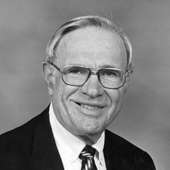- Sarah Byers receives 4-H Citizenship Award (2/13/14)
- Jerry and Katherine Arnold inducted into the 4-H Hall of Fame (9/7/13)
- Fourth of July food stand provides funding (5/10/13)
- Annual McGennis Youth Center report out (4/23/13)
- After eating he would say 'That was good' (2/14/13)
- Go go go go go (11/7/12)
- It is now Medicare open enrollment (10/24/12)
Opinion
Economic conditions are a challenge
Wednesday, January 14, 2009
We are living in interesting times. It was beyond imagination that our economy would go south as it has over the past few months. Yet, this is an experience in life that we can learn from. When we look back, there were adequate signs that we should have been aware that a major down cycle was coming.
If this downturn is compared with the Great Depression, you have not seen anything yet. The start of the Great Depression is credited to the stock market crash in 1929 -- although there were other things that contributed to the Depression. It lasted until the beginning of World War II.
Many credit the New Deal program as bringing an end to the Depression. Much of the federal intervention was started by President Herbert Hoover and continued by President Franklin D. Roosevelt. Recent research indicates that the New Deal kept the country in a depression longer than if there had not been government intervention.
A few years ago, an expression I heard was that if a neighbor loses his job, it is a recession. If you lose your job, it is a depression. Many people in recent months have lost their jobs, making it a difficult time for those folks. It has affected some areas of the country more than it has others places.
While I was born during the Great Depression, the generation prior to mine was more directly affected. That generation developed a different attitude toward money and handling money than later generations. They were conservative in how they spent their money and how they invested their money. Many of them went through tough times. Most did not have any money and they did without things. Also, many of the things we take for granted were not available to them.
My parents moved to the 120-acre farm where I was born and grew up in the early '30s. I was told that what they had for the house was placed on a hay wagon and moved with mules pulling the wagon. The cattle were driven to the farm that they had leased. We were poor and so was everybody else and people did not realize that they were poor.
That was before electricity. Kids now can not imagine life without TV and computers.
We listened to a battery-operated radio. It had to be somewhat limited, to save the battery, which we tried to do.
When I was young and went to movies a small sack of popcorn cost 5 cents and a box of popcorn cost 10 cents. It was too expensive to buy a box of popcorn and we usually did not buy a sack of popcorn because we could not afford that, either.
During the Depression there was a large percentage of people who were unemployed.
There are many stories told of how hard people were willing to work and had to work. Often, when a person could not work any longer there was someone else there to take their place.
Commodity prices were terrible and farmers were not able to make any money on their products. Plus, you add to that the droughts of the '30s when they did not produce any crops.
At least one year the grasshoppers ate nearly everything. I remember seeing a pitchfork that had been left in the field and the grasshoppers ate much of the handle.
As a kid, I remember the dust storms. As I recall they would usually happen in the fall. This was dust that was being blown in from Kansas. Since the conservation programs were introduced, we do not have those dust storms like we had back in those days.
Finis Wood said that the thing he remembers the most during the Depression was that he was working in a field west of Nevada during a dust storm and could not see a quarter of a mile.
We have been hearing much about man made global warming, but the temperature during the '30s far exceeded the temperatures that we experience these days.
Recently, I had an opportunity to be in a large historical house in Kansas City across the street from what is now the Kansas City Museum.
It is a three-story house with a basement. While taking a tour of the basement, we visited one room was where a broiler had been. They said that during the depression farmers were living there because they were not able to make a living on their farms.
In recent years, the attitude has been spend, spend and spend. This is true with the government as well as with many individuals. Credit cards were sent to people regardless of whether they applied for them, encouraging them to use them and spend.
People were encouraged to buy houses when they could not afford them. Many were able to buy houses and because the home prices were inflated, they could use the money to buy more expensive homes.
We have been encouraged to buy cars, to buy boats, to buy larger TVs and many other things. Then the bubble burst and we are in an economic slump.
In recent weeks there has been a drop in retail sales. Much of this is due to consumers deciding that they are not going to buy things that are not needed.
We are in for some interesting discussion and challenges. We can only hope that the right decisions will be made.

